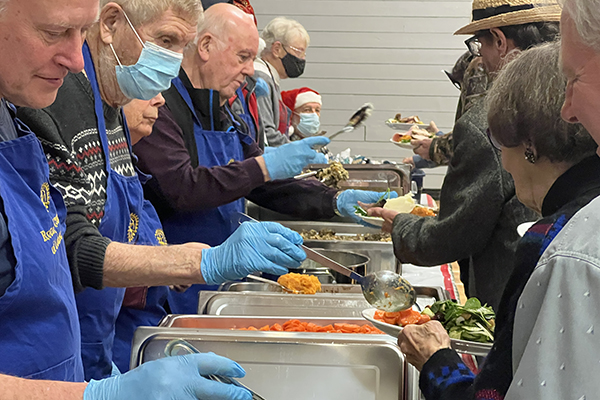
By Peter Roaf, Rotary Club of Ladner, Delta, British Columbia, Canada
My first son was autistic. He was on the more severe end of the spectrum. His mother and I had to take ourselves from joy over our firstborn through denial and grief. We had to accept the harsh reality of raising a child with special needs.
John was a jolly little guy with a sense of humour, but he couldn’t talk, learn, or care for himself. As he was growing up, I wondered what he would be like – what we would be like – when he became an adult. How would we lead our lives when the time for his care as an adult arrived?
This was the same reality for some parents of young children with mental health issues in the Vancouver, Canada, suburb of Delta, British Columbia. To support themselves through this responsibility – one not understood by many other parents – they formed the Weekend Family and Peer Support Group more than 25 years ago.
As children in the group matured and the parents grew older, it became more difficult for the parents to organize the social events that are so important in overcoming the unavoidable isolation and loneliness of a special-needs life. Cooking for the group of up to 50 young adults and parents became a real challenge for those already challenged.
Eighteen years ago, my Rotary Club of Ladner, in Delta, agreed to support the local Canadian Mental Health Association branch by cooking and serving Christmas dinner for the group.
Today I am one of the Rotary Club of Ladner members who, helped by family and friends, volunteer to produce the annual Christmas event. Some start by rounding up equipment, dishes, and cutlery and buying the turkeys, vegetables, desserts, and beverages.
On the day of the event I join a team of volunteers in the kitchen of the Ladner Community Centre to peel, chop, and boil the carrots; boil and mash the potatoes; and cook the Brussels sprouts. Amid the hustle and bustle in the kitchen with fellow peelers and choppers, I look around and think about how I’m making Christmas a little happier for others less fortunate.
Mental health is a significant part of the meaning of Rotary International President R. Gordon R. McInally’s Rotary theme this year: Create Hope in the World.
That sense of fulfillment continues into the Christmas dinner evening. Faces light up and social chatter grows while we serve dinner. Entertainment with live, seasonal music keeps the evening upbeat. Santa Claus brings good cheer and gifts donated by local businesses. We all benefit from this lift to our mental health as everyone leaves with a good feeling inside (as they should at Christmas time).
On the strength of the Christmas dinner, our club launched an annual summer picnic for the support group. I join as many as 15 Rotarians, family, and friends to serve the 40 or so group members who show up for a barbecue and games. Group members always express their sincere appreciation to the club for these social events, which make a difference in their lives.
Rotarian and retired dentist Dr. Arthur Birk and his wife, Geraldine, have been leaders of the group. They arrange bingo nights, Chinese food nights, salmon barbecue dinners, and other social events with dinner and games every two months. They also collect and distribute free personal care and household cleaning items. Rotarian and businessperson Mike Storey and his wife, Kathy, have also been leaders for the larger events.
Christmas is approaching. Mental health is a significant part of the meaning of Rotary International President R. Gordon R. McInally’s Rotary theme this year: Create Hope in the World. Our Christmas dinner will have extra meaning.
My son John did not make it past age 15. But I now have a sense, in some small way, of what his adult life might have been like and what we, his parents, might have lived with. This service above self for those in need is a valuable part of my Rotary experience. This kind of experience will be found in communities throughout our Rotary world. Share yours in the comments section.
Learn more about McInally’s presidential initiatives
https://blog.rotary.org/2023/11/21/adults-with-special-needs-find-social-connection-through-rotary/
